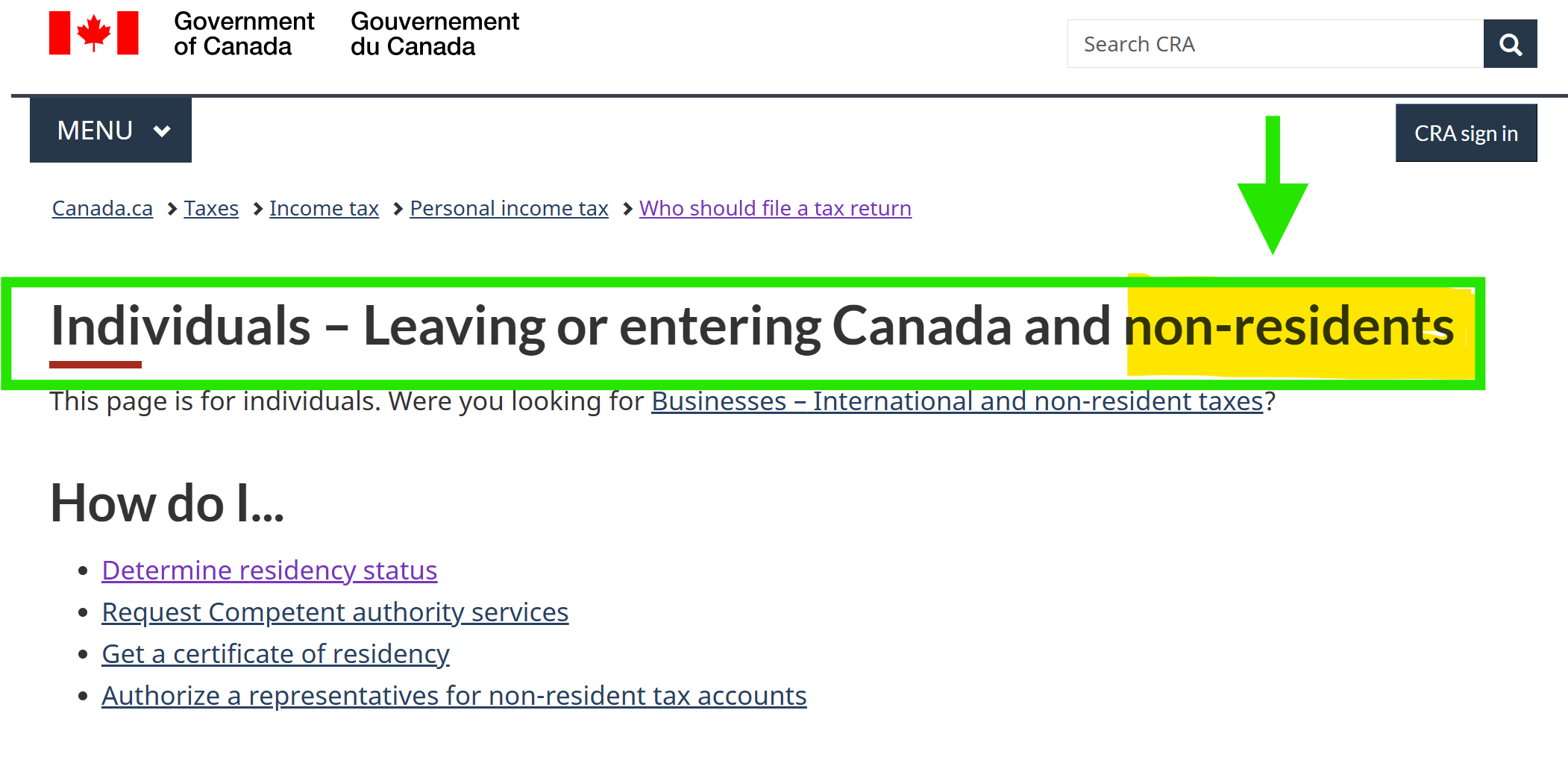
Written by someone who’s walked clients through this more times than he can count.
I see this question all the time on Reddit, in Facebook groups, and even from clients who call me from the airport:
“I'm moving to the U.S. (or the UK, or Dubai, or wherever). What do I need to do now for my Canadian taxes?”
Turns out, leaving Canada for tax purposes isn’t just a matter of packing your bags. There’s real paperwork, forms, and tax consequences. Here's a general checklist, plus some hard-earned commentary from a CPA who's helped people navigate this many times.
This is the date you officially become a non-resident for tax purposes. CRA looks at your residential ties — your home, spouse, dependents, driver’s license, health card, etc. If most of those are gone, or transferred to another country, you're probably non-resident from that date.
This date sets the clock for everything that follows, including tax triggering events on the day you depart.
Your final return includes:
You'll also need to file:
This is how CRA triggers departure tax, a tax on gains that haven't actually been realized.
Departure tax is CRA’s way of saying:
"If you’re going to leave Canada with appreciated assets, we want our cut before you go."
You’ll pay tax on things like:
What’s not taxed on departure:
You can elect to defer the departure tax, but you may need to post security.
Once you land in your new country — the U.S., Australia, Portugal, wherever — you're on the hook to report worldwide income there, too.
For U.S. filers, you'll likely do:
Treaties help, but you need to file things properly to claim those benefits.
Don't ghost the CRA. Your departure date should be clearly stated on your return, and you should update your mailing address (to an international address) with CRA.
Once you’re non-resident, your Canadian financial institutions are legally required to:
But they won’t apply the treaty rate unless you tell them you’re non-resident and fill out the NR301 form.

These are Canada-only tax shelters. In most other countries — especially the U.S. — they’re just regular taxable investment accounts.
Your safest bet? Collapse them before you leave. Clean break.
The RRSP is fine to keep — the Canada-U.S. Tax Treaty recognizes its tax-deferred status.
But some U.S. states don’t follow the treaty:
California, New Jersey, Pennsylvania, Connecticut, Maryland, Alabama, Mississippi, North Dakota, Arkansas, Hawaii
If you’re moving to one of these states, your RRSP income might be taxed at the state level even if the IRS defers it.
If you now live in the U.S. and you still hold:
You probably need to file:
Each province is different — but the rule of thumb is this:
If you're not living here, you're not covered.
Let your province know. Otherwise, they’ll keep billing or sending mail and assume you’re still around.
Ideally, talk to someone before you move. Not after. A tax advisor with cross-border experience can help you:
Also, get clarity on what you'll still have to report moving forward — rental property? investments? pensions? It all matters.
Leaving Canada as a tax resident isn’t casual. There’s a checklist. There’s paperwork. There’s tax.
If you’ve got assets, property, or Canadian investments — or if you’re heading to a country with aggressive tax rules like the U.S. — get proper advice. This is one area where guessing can cost you a lot more than a plane ticket.
And if you're reading this and feel overwhelmed? That’s normal.
But this is literally what I do every day — I’ve helped people move to the U.S., Europe, Asia, you name it. So if you’re stuck or just want a second pair of eyes on your situation, feel free to reach out.
--
This is not legally binding tax advice. This is educational analysis. Say hello if you need help.
WhatsApp - 613.600.4194
--
Disclaimer
The information provided on this page is intended to provide general information. The information does not take into account your personal situation and is not intended to be used without a specific consultation. Lucas CPA Professional Corporation will not be held liable for any problems that arise from the usage of the information provided on this page.